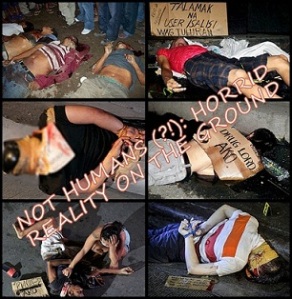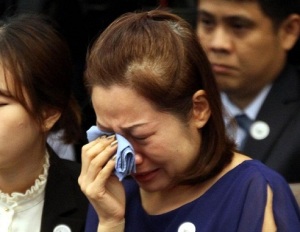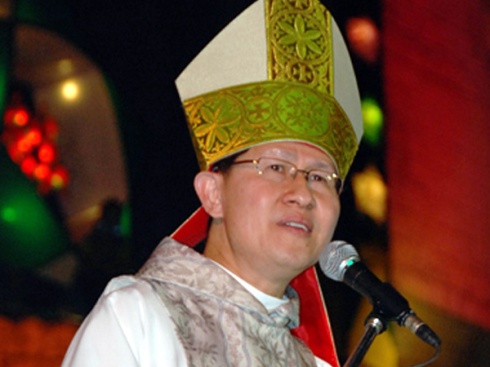Tokhang: Pres. Duterte’s war against the poor, the criminal justice system and the nation
 He cursed, railed and hurled expletives on his way to Malacañang, swearing to kill all corrupt officials, drug lords and criminals. And the poor and the gullible cheered their new-found champion and savior.
He cursed, railed and hurled expletives on his way to Malacañang, swearing to kill all corrupt officials, drug lords and criminals. And the poor and the gullible cheered their new-found champion and savior.
Riding the wave of discontent over a bankrupt political system and a disjointed and corrupt government, Rodrigo Duterte took the Philippine presidency by an overwhelming plurality of votes in a field of 5 candidates. And he wasted no time in reshaping his country and people according to the mindset of a heavy-handed, devil-may-care city mayor from the war-torn, violence-prone island of Mindanao.
In his mind the country is in danger of becoming a narco-state, with 3 million drug addicts, unrelenting supply of shabu (methamphetamine) and government officials colluding with the illegal drug trade. He produced a long list of names of politicians, police officers, judges, local officials and underground characters that are purportedly involved in the illicit trade of drugs. To them he issued this deadly ultimatum in public: “surrender or die.”
Thus was hatched Oplan Tokhang — touted to be Pres. Duterte’s flagship campaign that will wipe out drug offenders and criminals off the face of the earth. To lead the campaign, Pres. Duterte personally handpicked former Davao City police chief Ronald dela Rosa, a trusted lieutenant of his, to head the Philippine National Police (PNP) and then issued his infamous “kill, kill, kill” marching order to dela Rosa and the PNP.
And the open season for killings begins.
 Tokhang (from Cebuano words “toktok” and “hangyo” meaning “knock and plead”) was first explained to the public by dela Rosa as a police operation that involves literally knocking on the doors of suspected drug offenders and pleading with them to surrender and mend their ways. But then dead bodies with bullet holes began to appear in slums and blighted areas around the country. Averaging 10-12 dead bodies daily (some hogtied and many bearing crude cardboard signs tagging the victims as drug offenders), the casualties of the so-called “war on drugs” grew alarmingly to thousands as the months go by.
Tokhang (from Cebuano words “toktok” and “hangyo” meaning “knock and plead”) was first explained to the public by dela Rosa as a police operation that involves literally knocking on the doors of suspected drug offenders and pleading with them to surrender and mend their ways. But then dead bodies with bullet holes began to appear in slums and blighted areas around the country. Averaging 10-12 dead bodies daily (some hogtied and many bearing crude cardboard signs tagging the victims as drug offenders), the casualties of the so-called “war on drugs” grew alarmingly to thousands as the months go by.
The killings were condemned by Catholic bishops in the Philippines, world leaders and international human rights groups, and they urged Pres. Duterte to investigate allegations of extrajudicial executions by the police in the pursuit of his war on drugs. They were all met with typical Duterte tirade against critics, hurling insults and hostile language at the bishops, former US Pres. Barack Obama and former UN secretary general Ban Ki-Moon. His rage did not spare critical European Union leaders.
The Supreme Court (SC), apart from issuing a lame public statement that judges suspected of drug offense must be accorded their constitutional rights, did nothing more — seemingly silenced by Pres. Duterte’s threat to declare martial law. For its part, Congress (with its long history of propensity for conducting high-profile investigations “in aid of legislation”) refused to even take a cursory look at allegations of police executions.
Forced to deny allegations of summary executions by his police, dela Rosa explained to the public that about half of the then 3,700-plus casualties of the war on drugs resisted arrest and grabbed the gun of the arresting officer or simply shot it out with the police, while the other casualties were casually explained away as handiwork of vigilantes and warring drug lords.
To many, the sheer number of those killed while allegedly grabbing the gun of the arresting officer defies logic. Nanlaban (resisted arrest or slugged it out) quickly became a byword for police execution. Noticeable, too, was police arrests always end up with dead suspects, leading many to believe that the police are taking no prisoners.
 Yet the killings went unabated well into the 7th month of the Duterte administration.
Yet the killings went unabated well into the 7th month of the Duterte administration.
Through all these, Pres. Duterte remained adamant and insistent that the only solution to the drug problem is to “kill them all.” He went on to say “I will be happy to slaughter them all” (referring to his estimated 3 million drug addicts in the country), reasoning out that drug addicts are not humans and are walking dead anyway.
And most of the people supported his grisly pronouncements, either by tacit approval or deafening silence. But in reality nobody (including Duterte’s most avid supporters) is safe in a country where anybody suspected to be connected with illegal drugs could legitimately be murdered by the police.
Then the inevitable has happened!
A South Korean businessman named Jee Ick-Joo was abducted by police officers, brought to Camp Crame (PNP’s national headquarters) and strangled to death. His remains were cremated and his ashes flushed down the toilet bowl. And then the perpetrators of the grisly crime collected PhP5-million ransom money from Ick-Joo’s unsuspecting widow.
 The media got wind of the grisly crime when Ick-Joo’s widow went public and condemned the brutal murder of her husband and extortion by police officers. Both the South Korean and American embassies in Manila also sent formal protests to the Philippine government against Ick-Joo’s brutal kidnap-slay.
The media got wind of the grisly crime when Ick-Joo’s widow went public and condemned the brutal murder of her husband and extortion by police officers. Both the South Korean and American embassies in Manila also sent formal protests to the Philippine government against Ick-Joo’s brutal kidnap-slay.
What followed was a national scandal too big for Pres. Duterte and dela Rosa to ignore, and it also opened a floodgate of complaints against similar cases of tokhang-for-ransom and cold-blooded executions by the police. Of late, Amnesty International released a report (dubbed “pay per kill” by the media) claiming that the police received from PhP8,000 to 15,000 for every drug personality they killed.
Faced with the stark reality that the PNP is a damaged institution, tainted by criminal syndicates and corrupt officers, Pres. Duterte was forced to disband PNP’s Anti-Illegal Drugs Group and stop Oplan Tokhang, transferring all anti-illegal drug operations from the PNP to the Philippine Drug Enforcement Agency (PDEA).
The PDEA itself is not a holy place, with a history of extortion, planting of evidence and recycling of confiscated illegal drugs committed by its agents. One can only hope and pray that the PDEA will perform its mandated duties within the bounds of the law and hale warm bodies into court instead of haul cold bodies to morgues and funeral parlors.
 With Pres. Duterte remaining unperturbed and threatening to “kill more,” the moribund human rights group of the martial law days called MABINI (Movement of Attorneys for Brotherhood, Integrity and Nationalism) re-grouped its ageing members, led by former senator Rene Saguisag, and offered its legal service to civil and human rights victims of the war on drugs.
With Pres. Duterte remaining unperturbed and threatening to “kill more,” the moribund human rights group of the martial law days called MABINI (Movement of Attorneys for Brotherhood, Integrity and Nationalism) re-grouped its ageing members, led by former senator Rene Saguisag, and offered its legal service to civil and human rights victims of the war on drugs.
For her part, Chief Justice Maria Lourdes Sereno finally broke her long silence and whined: “The perception of the rule of law in the country has diminished due to unresolved killings of drug suspects.”
The joint Philippine and foreign chambers of commerce also issued a public statement expressing concern over “the safety of local and foreign businessmen and residents at large in the Philippines” and the future of foreign business and investment in the country.
This is where we are right now, as I write this article, 7 months into the Duterte administration and 7,000-plus casualties of the war on drugs … and counting as news about drug-related killings still persist.
How does one view Pres. Duterte’s war on drugs with an open, objective mind?
 First, the war on drugs was waged in total disregard of the rule of law and the country’s criminal justice system, violating the victims’ civil and human rights in the process.
First, the war on drugs was waged in total disregard of the rule of law and the country’s criminal justice system, violating the victims’ civil and human rights in the process.
Second, victims of drug-related killings tend to come from the poorest urban neighborhoods – impoverished drug users, street peddlers of shabu and petty criminals.
Third, while poor suspects get executed, drug lords and their protectors remain untouched by the war on drugs.
A few of these drug lords and protectors even managed to get presidential audience and were all accorded their constitutional rights by Pres. Duterte. And they all came out of the meeting with Duterte badly shaken but otherwise unharmed and scot-free.
The proverbial lesson here is “one does not kill a bad weed by nipping at its buds.”
The problem of drug addiction is more than just a security problem. As former Pres. Cesar Gaviria of Colombia learned the hard way from his own failed war on drugs in the 1990s, killing will not make the problem go away.
Brutal shortcut in fighting crime is not a solution. On the contrary, for every drug-related execution a homicide is committed and added to major crime statistics.
“Winning the fight against drugs,” Gaviria observed, “requires addressing not just crime, but also public health, human rights and economic development.”
With its distorted premises and destructive after-effects on our social, political and economic institutions, the war on drugs is a war against the poor, the criminal justice system and the entire nation.
As for us, something has gone terribly wrong when it took the death of a South Korean businessman to force Pres. Duterte to stop the bloody operation of Tokhang but not that of the 7,000-plus Filipino victims of the war on drugs.
Our moral values compel us to now ask ourselves this painful question: “How did we abandon our humanity and acquiesce to this gruesome and unprecedented mass murder in the history of our nation?”
Author: Rene “RC” Catacutan
Published 11 February 2017
Pasig City, PHILIPPINES
Related Photos
Pres. Duterte’s vicious war on drugs
The other face of Pres. Duterte’s vicious war on drugs
PNP chief Ronald dela Rosa whispering something to Pres. Duterte
The grieving widow of South Korean kidnap-slay victim Jee Ick-Joo
Amnesty International Philippines condemning the execution of poor suspects
Pres. Duterte’s running feud with Catholic bishops in the Philippines over the war on drugs
Supreme Court Chief Justice Maria Lourdes Sereno
Manila Archbishop Luis Antonio Tagle
Former Pres. Cesar Gaviria of Colombia
Former US Pres. Barack Obama
Former UN Secretary General Ban Ki-Moon












Recent Comments